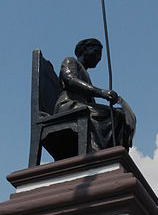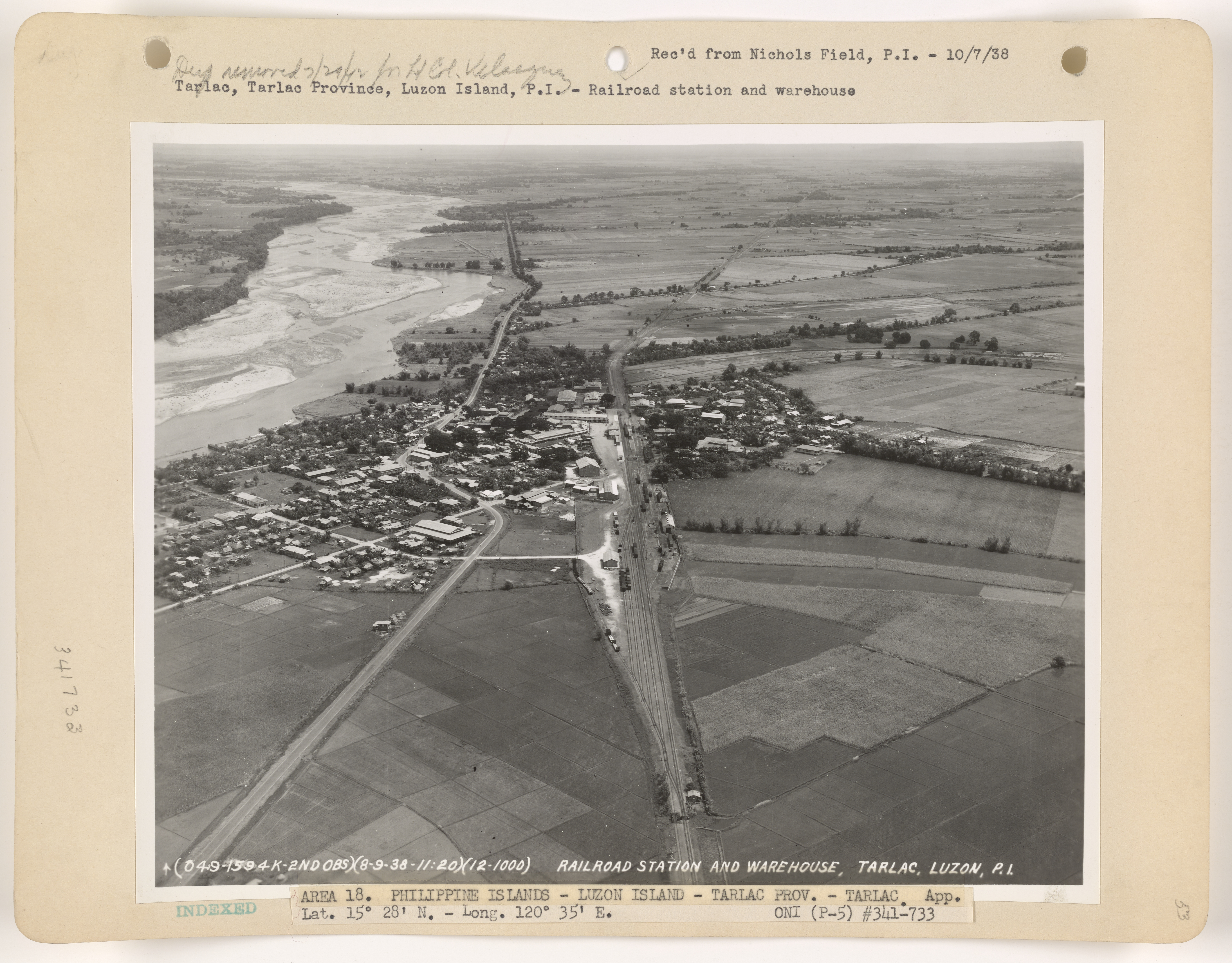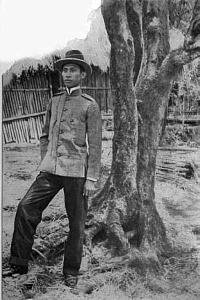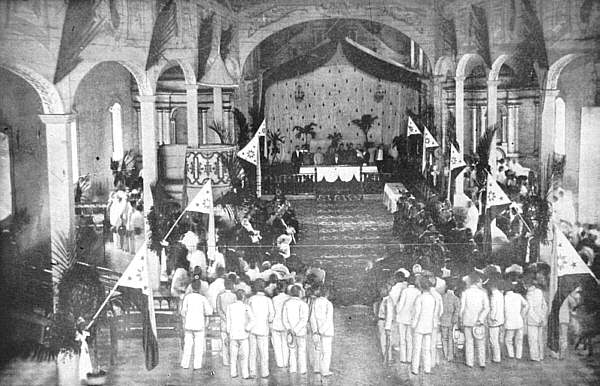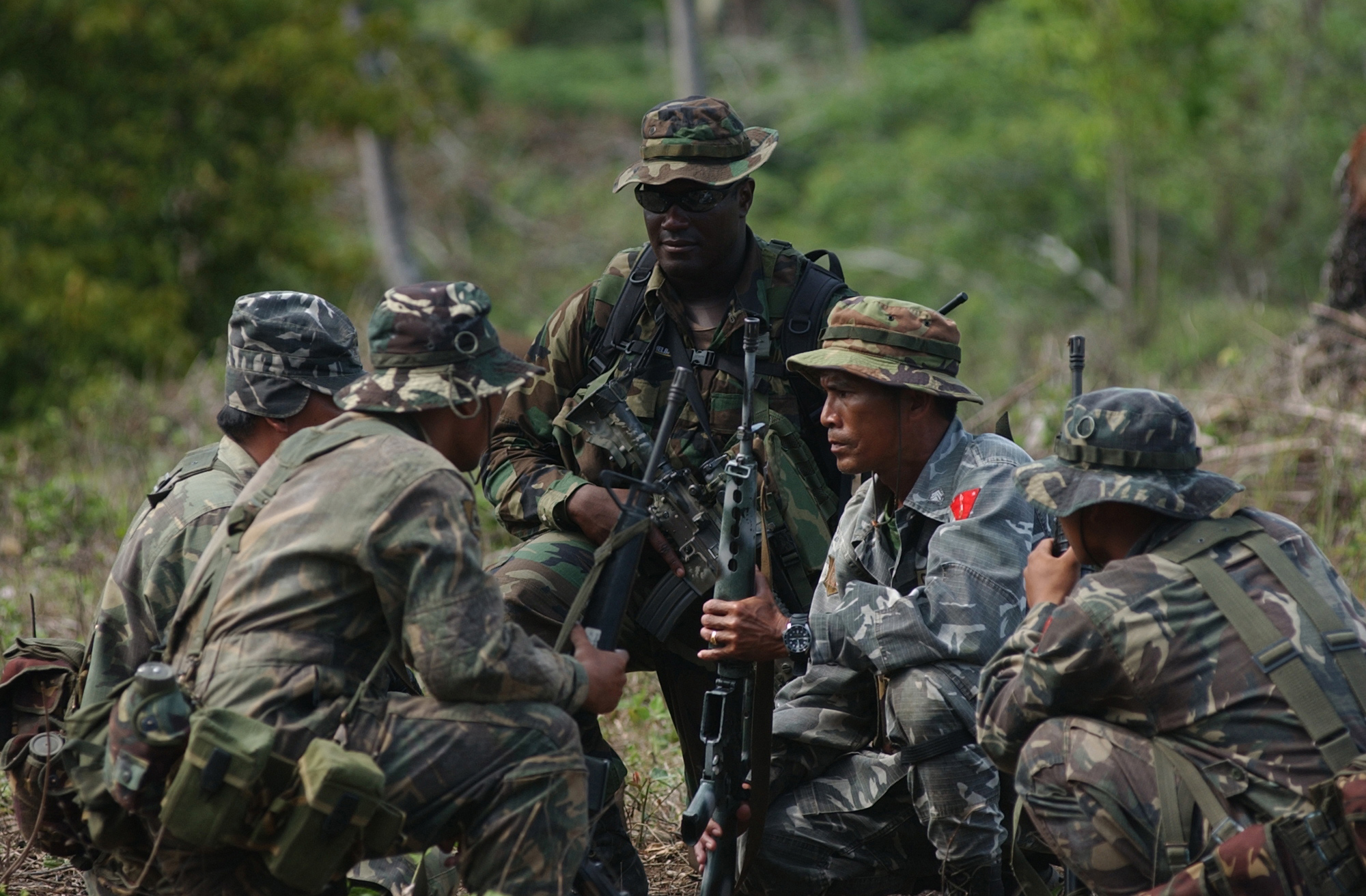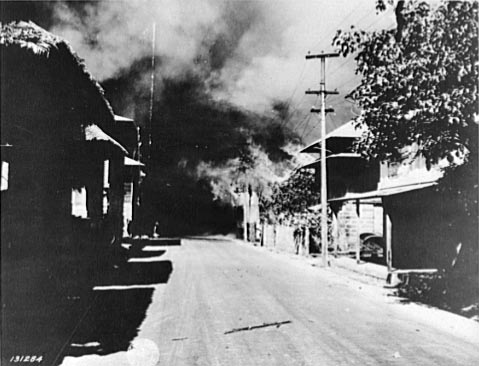|
Kapampangan People
The Kapampangan people ( pam, Taung Kapampangan), Pampangueños or Pampangos, are the sixth largest ethnolinguistic group in the Philippines, numbering about 2,784,526 in 2010. They live mainly in the provinces of Pampanga, Bataan and Tarlac, as well as Bulacan, Nueva Ecija and Zambales. Overview The province of Pampanga is the traditional homeland of the Kapampangans. Once occupying a vast stretch of land that extended from Tondo to the rest of Central Luzon, huge chunks of territories were carved out of Pampanga so as to create the provinces of Bulacan, Bataan, Nueva Ecija, Aurora and Tarlac.Henson, Mariano A. 1965. ''The Province of Pampanga and Its Towns: A.D. 1300–1965''. 4th ed. revised. Angeles City: By the author. As a result, Kapampangans now populate a region that extends beyond the political boundaries of the small province of Pampanga. In the province of Tarlac, the indigenous population of Tarlac City and the municipalities of Bamban, Capas and Concepcion are ... [...More Info...] [...Related Items...] OR: [Wikipedia] [Google] [Baidu] |
Central Luzon
Central Luzon ( pam, (Reyun ning) Kalibudtarang Luzon, pag, (Rehiyon na) Pegley na Luzon, tgl, (Rehiyon ng) Gitnang Luzon, ilo, (Rehion/Deppaar ti) Tengnga ti Luzon), designated as Region III, is an administrative region in the Philippines, primarily serving to organize the 7 provinces of the vast central plains of the island of Luzon (the largest island), for administrative convenience. The region contains the largest plain in the country and produces most of the country's rice supply, earning itself the nickname "Rice Granary of the Philippines". Its provinces are: Aurora, Bataan, Bulacan, Nueva Ecija, Pampanga, Tarlac and Zambales. Pangasinan was formerly a province of Central Luzon before President Marcos signed ''Presidential Decree No. 1'', 1972, incorporating it into Ilocos Region. Additionally, the province of Aurora was part of the defunct political region Southern Tagalog when the region was divided into Calabarzon and Mimaropa, upon the issuance of ''Executive Ord ... [...More Info...] [...Related Items...] OR: [Wikipedia] [Google] [Baidu] |
Ethnic Groups In The Philippines
The Philippines is inhabited by more than 182 ethnolinguistic groups, many of which are classified as "Indigenous Peoples" under the country's Indigenous Peoples' Rights Act of 1997. Traditionally-Muslim peoples from the southernmost island group of Mindanao are usually categorized together as Moro peoples, whether they are classified as Indigenous peoples or not. About 142 are classified as non-Muslim Indigenous People groups, and about 19 ethnolinguistic groups are classified as neither indigenous nor moro. Various migrant groups have also had a significant presence throughout the country's history. The Muslim-majority ethnic groups ethnolinguistic groups of Mindanao, Sulu, and Palawan are collectively referred to as the Moro people, a broad category which includes some indigenous people groups and some non-indigenous people groups. With a population of over 5 million people, they comprise about 5% of the country's total population, or 5 million people. The Spanish called ... [...More Info...] [...Related Items...] OR: [Wikipedia] [Google] [Baidu] |
Tarlac City
Tarlac City, officially the City of Tarlac ( pam, Lakanbalen ning Tarlac; pag, Siyudad na Tarlac; ilo, Siudad ti Tarlac; fil, Lungsod ng Tarlac ), is a 1st class component city and capital of the province of Tarlac, Philippines. According to the 2020 census, it has a population of 385,398 people. The city was proclaimed as a highly urbanized city by the former President Gloria Macapagal Arroyo, but the decision was opposed by the provincial government. History Tarlac's first settlers came from Bacolor, Pampanga. They cleared the area, fertilised the soil, and then established their settlement here in 1788. This small community of settlers experienced rapid population growth, as settlers from Bataan, Pampanga and Zambales moved into the area. The Kapampangan language, which is the dialect of Pampanga, became the native language of this town. Roads and barrios were built over the following decades through hard work of its residents. Following the foundation of the provinc ... [...More Info...] [...Related Items...] OR: [Wikipedia] [Google] [Baidu] |
Tondo, Manila
Tondo is a district located in Manila, Philippines. It is the largest in terms of area and population of Manila's sixteen districts, with a Census-estimated 631,313 people in 2015 and consists of two congressional districts. It is also the second most densely populated district in the city. Etymology The name Tondo can be derived from its Old Tagalog name, Tundun as inscribed in the Laguna Copperplate Inscription of 900 AD, the earliest native document found within the Philippines. Dutch anthropologist Antoon Postma, the first to translate the copperplate, believes the term ''tundun'' originated from the old Indian language Sanskrit, which was used alongside Old Malay as a language of politics and religion in the area at the time. Before this landmark discovery, several theories (however incorrect now) existed. Philippine National Artist Nick Joaquin once suggested that it might be a reference to a high ground ("tundok"). On the other hand, French linguist Jean-Paul Potet, s ... [...More Info...] [...Related Items...] OR: [Wikipedia] [Google] [Baidu] |
Provinces Of The Philippines
In the Philippines, provinces ( fil, lalawigan) are one of its primary political and administrative divisions. There are 82 provinces at present, which are further subdivided into component cities and municipalities. The local government units in the National Capital Region, as well as independent cities, are independent of any provincial government. Each province is governed by an elected legislature called the Sangguniang Panlalawigan and an elected governor. The provinces are grouped into seventeen regions based on geographical, cultural, and ethnological characteristics. Thirteen of these regions are numerically designated from north to south, while the National Capital Region, the Cordillera Administrative Region, the Southwestern Tagalog Region, and the Bangsamoro Autonomous Region in Muslim Mindanao are only designated by acronyms. Each province is a member of the League of Provinces of the Philippines, an organization which aims to address issues affecting provi ... [...More Info...] [...Related Items...] OR: [Wikipedia] [Google] [Baidu] |
Tarik Sulayman
Tarik Sulayman, also spelled Tarik Soliman (from Arabic طارق سليمان '' Tāriq Sulaiman''), is the most popular of several names attributed by Kapampangan historians to the individual that led the forces of Macabebe against the Spanish forces of Miguel López de Legazpi during the Battle of Bangkusay Channel on June 3, 1571. Aside from "Tarik Sulayman", this individual has also been associated with the names Bambalito or Bankau by some historians, while others simply consider him "nameless." The Spanish records do not identify that individual by name, so the attribution of the name ''Tarik Sulayman'' is based on genealogical records presented by the leader's supposed Kapampangan descendants during the 19th century. The Battle of Bangkusay happened because he refused to ally with the Spaniards as Lakandula had done, decided to mount an attack on the Spaniards, massing his forces at Bangkusay Channel. López de Legazpi got word of the impending attack and launched a pre ... [...More Info...] [...Related Items...] OR: [Wikipedia] [Google] [Baidu] |
Zambales
Zambales, officially the Province of Zambales ( fil, Lalawigan ng Zambales; ilo, Probinsia ti Zambales; Pangasinan: ''Luyag/Probinsia na Zambales''; xsb, Probinsya nin Zambales), is a province in the Philippines located in the Central Luzon region. Its capital is Iba, which is located in the middle of the province. Zambales borders Pangasinan to the north and northeast, Tarlac to the east, Pampanga to the southeast, Bataan to the south and the South China Sea to the west. With a total land area of (including the independent city of Olongapo), Zambales is the second largest among the seven provinces of Central Luzon after Nueva Ecija. The province is noted for its mangoes, which are abundant from January to April. Zambales does not have a functional airport - the closest functional airport is the Clark International Airport in Angeles City in the neighbouring province of Pampanga. Subic Bay International Airport, which is located in Cubi Point (geographically located inside ... [...More Info...] [...Related Items...] OR: [Wikipedia] [Google] [Baidu] |
Nueva Ecija
Nueva Ecija, officially the Province of Nueva Ecija ( tgl, Lalawigan ng Nueva Ecija , also ; ilo, Probinsia ti Nueva Ecija; pag, Luyag/Probinsia na Nueva Ecija; Kapampangan: ''Lalawigan/Probinsia ning Nueva Ecija''), is a landlocked province in the Philippines located in the Central Luzon region. Its capital is the city of Palayan, while Cabanatuan, its former capital, is the largest local government unit (LGU). Nueva Ecija borders, from the south clockwise, Bulacan, Pampanga, Tarlac, Pangasinan, Nueva Vizcaya and Aurora. The province is nationally known as the ''Rice Granary of the Philippines'', producing the largest rice yield in the country. History Precolonial era These first settlers included tribes of Ilongots ( Egungot) or Italons, Abaca and Buquids. Settlements were built along the banks following the river's undulations. The Ilongots, meaning people of the forest, were the fierce headhunters and animist tribes who occupied Carranglan and the mountainous terrain of ... [...More Info...] [...Related Items...] OR: [Wikipedia] [Google] [Baidu] |
Bulacan
Bulacan, officially the Province of Bulacan ( tl, Lalawigan ng Bulacan), is a province in the Philippines located in the Central Luzon region. Its capital is the city of Malolos. Bulacan was established on August 15, 1578, and part of the Metro Luzon Urban Beltway Super Region. It has 569 barangays in 20 municipalities and four component cities (Baliuag, Malolos the provincial capital, Meycauayan, and San Jose del Monte). Bulacan is located immediately north of Metro Manila. Bordering Bulacan are the provinces of Pampanga to the west, Nueva Ecija to the north, Aurora and Quezon to the east, and Metro Manila and Rizal to the south. Bulacan also lies on the north-eastern shore of Manila Bay. In the 2020 census, Bulacan had a population of 3,708,890 people, the most populous in Central Luzon and the third most populous in the Philippines, after Cebu and Cavite. Bulacan's most populated city is San Jose del Monte, the most populated municipality is Santa Maria while the least po ... [...More Info...] [...Related Items...] OR: [Wikipedia] [Google] [Baidu] |
Tarlac
Tarlac, officially the Province of Tarlac ( pam, Lalawigan ning Tarlac; pag, Luyag/Probinsia na Tarlac; ilo, Probinsia ti Tarlac; tgl, Lalawigan ng Tarlac; ), is a landlocked province in the Philippines located in the Central Luzon region. Its capital is the city of Tarlac. It is bounded on the north by the province of Pangasinan, Nueva Ecija on the east, Zambales on the west and Pampanga in the south. The province comprises three congressional districts and is subdivided into 17 municipalities and one city, Tarlac City, which is the provincial capital. The province is situated in the heartland of Luzon, in what is known as the Central Plain also spanning the neighbouring provinces of Pampanga, Pangasinan, Nueva Ecija and Bulacan. Tarlac covers a total land area of . Early in history, what came to be known as Valenzuela Ranch today was once a thickly-forested area, peopled by roving tribes of nomadic Aetas who are said to be the aboriginal settlers of the Philippines, and ... [...More Info...] [...Related Items...] OR: [Wikipedia] [Google] [Baidu] |
Bataan
Bataan (), officially the Province of Bataan ( fil, Lalawigan ng Bataan ), is a province in the Central Luzon region of the Philippines. Its capital is the city of Balanga while Mariveles is the largest town in the province. Occupying the entire Bataan Peninsula on Luzon, Bataan is bordered by the provinces of Zambales and Pampanga to the north. The peninsula faces the South China Sea to the west and Subic Bay to the north-west, and encloses Manila Bay to the east. The Battle of Bataan is known in history as one of the last stands of American and Filipino soldiers before they were overwhelmed by the Japanese forces in World War II. The Bataan Death March was named after the province, where the infamous march started. History Classical Period The first inhabitants of the Bataan peninsula are the Ayta Magbeken people, who are one of the first Negrito ancestors of present-day Filipinos. Later on, Tagalog communities from southern Luzon migrated to parts of Bataan and the Ayta Ma ... [...More Info...] [...Related Items...] OR: [Wikipedia] [Google] [Baidu] |
Pampanga
Pampanga, officially the Province of Pampanga ( pam, Lalawigan ning Pampanga; tl, Lalawigan ng Pampanga ), is a province in the Central Luzon region of the Philippines. Lying on the northern shore of Manila Bay, Pampanga is bordered by Tarlac to the north, Nueva Ecija to the northeast, Bulacan to the east, the Manila Bay to the central-south, Bataan to the southwest and Zambales to the west. Its capital is the City of San Fernando. Angeles City is the largest LGU but while geographically within Pampanga, it is classified as a first-class, highly urbanized city and has been governed independently of the province since it received its charter in 1964. The name ''La Pampanga'' was given by the Spaniards, who encountered natives living along the banks (''pampáng'') of the Pampanga River. Its creation in 1571 makes it the first Spanish province on Luzon Island (Cebu in Visayas is older as it was founded by the Spaniards in 1565). The town of Villa de Bacolor in the province bri ... [...More Info...] [...Related Items...] OR: [Wikipedia] [Google] [Baidu] |
